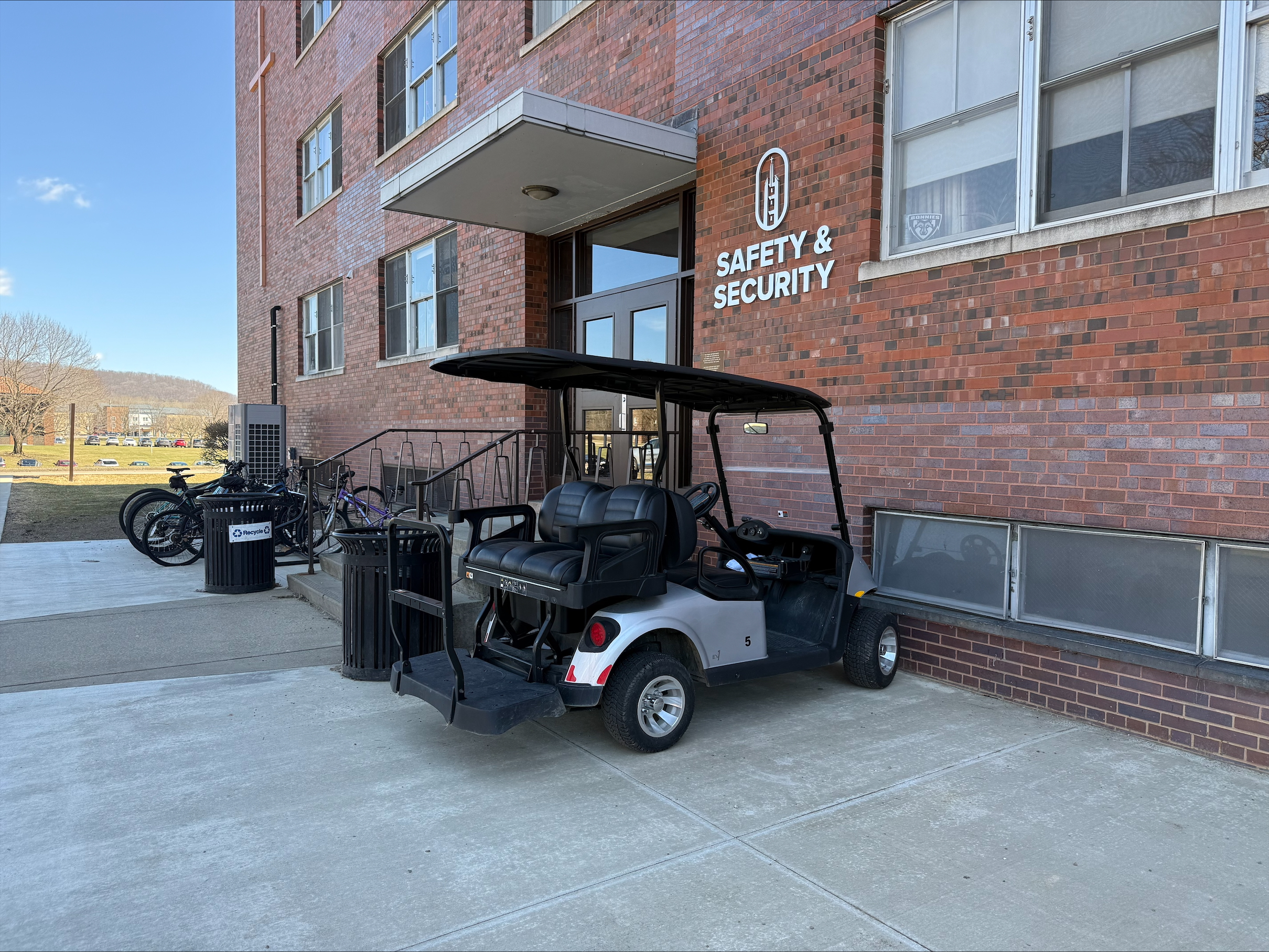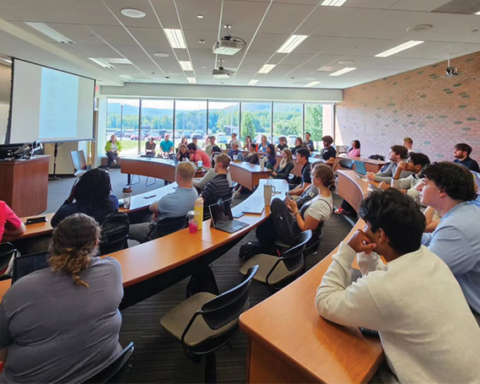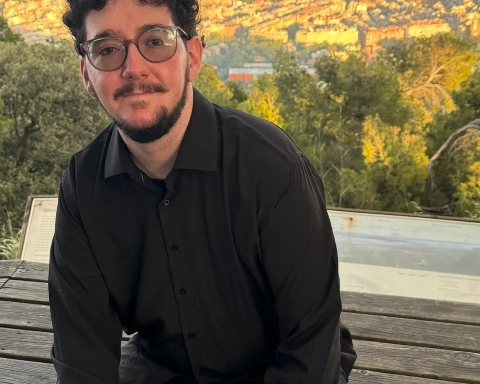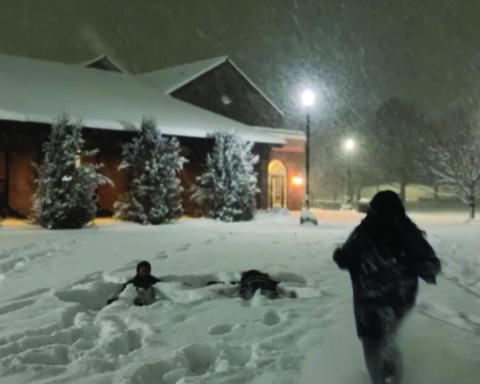By Amelia Kibbe Advisory Editor
The current Student Government Association executive board discovered a major infraction with the organization’s constitution and now plans to correct the flaws, said Richard Trietley, SGA’s adviser.
Trietley, also the vice president for Student Affairs at St. Bonaventure, said while the basis of the constitution remains valid, any amendments made since 2011—the last time SGA correctly ratified the document—are invalid.
“The reality is the constitution is not invalid,” he said. “What’s invalid are the revisions made in 2013 and 2014, so the 2011 constitution is fully valid. That’s a key point.”
According to Danette Brickman, currently the adviser to the constitutional revision commission, in order for an amendment to become an official part of the constitution, the amendment must go through one of two processes.
The first option, she said, would require a member of SGA to propose and present the suggestion at a meeting, where the other SGA members discuss it. At a subsequent meeting—as amendments can’t be voted on during the first meeting—SGA rereads the proposed amendment and then votes. Should the vote pass with a two-thirds majority, two weeks later the amendment passes to the student body to vote —usually by an electronic vote. If two-thirds of the votes favor the amendment, then both Trietley and Sr. Margaret Carney, O.S.F., university president, review the amendment before it becomes official, Brickman said.
The second option, she said, comes from a clause in the constitution, which states that every three years SGA forms a constitutional revision commission in order to review the constitution and make recommendations.
The commission includes members of a judicial branch, Brickman said. The SGA president nominates these members (and the senate votes to approve the nominations). Then, as in the first option, Brickman said the proposed amendment(s) follows the same process from SGA, to the student body to Trietley and the university president. However, SGA must allow for a 60-day wait period before the amendment goes to a student body vote for this option, she added.
As announced by Rose Brown, SGA president, in the Jan. 29 meeting, while all amendments from 2011 until the present passed through the SGA vote, they did not go to a student body vote and Trietley and Carney did not view them to approve.
“When proper procedure for amending the constitution is not followed, then the amendment is not valid,” said Brickman. “But the constitution itself is still valid.”
Because the basis of the constitution remains valid, all SGA positions are valid because the elected members swore to uphold the constitution as a whole, not a particular revised edition, she added.
SGA leaders and Brickman discovered the errors while Brickman reread the document over the weekend of Jan. 23 and 24 in preparation of adding more amendments, she said.
“The executive branch met with me to discuss making amendments to the constitution,” Brickman said, adding at that time no one knew of any infractions with the document. “As I began reading through the constitution, I noticed things that I did not remember being in the constitution or being different from what I remembered when I worked with students in 2008 when the document was [first] written.”
On Jan. 25, Brickman contacted J.W. Cook, SGA executive treasurer, and asked him about when the student body had voted in the past years. Cook, a junior political science major, checked with Bonaventure’s tech services to see if electronic votes had taken place, Brickman said, adding no record of a vote existed.
On Tuesday, Jan. 26, the executive board and Brickman informed Trietley of the situation, Trietley said. He added that none of the now-invalid amendments concerned any financial decisions.
At the regularly scheduled Jan. 29 SGA meeting, the board presented the senate and SGA-chartered club leaders with the problem and outlined the solution, beginning with Brown reading an explanatory letter.
“I couldn’t be more proud of our student leaders,” Trietley said. “I am happy that our leaders not only found this out, but that they’ve been absolutely transparent about this. Think about it— how easy would it have been for them to hide this?”
In her letter, Brown said she appointed one chief justice and five associate justices, who the senate would vote to approve that day. The goal of the newly formed judicial branch (required to have every three years per the 2011 version of the constitution) would be to assist in amending the document.
While many senators raised concerns about voting so quickly after learning about the problems and appointments, the executive board said in order for the commission to make amendments this semester, the process would have to begin almost immediately.
“In an ideal world, it would have been nice to have more time for the senators to talk about this,” said Brown. “Unfortunately, we were under very tight time constraints to get the constitutional revision commission in place. The judicial branch is the core of the revision commission, so it was important that we get them nominated and confirmed by the student senate as quickly as possible.”
None of the procedures at the last meeting violated the constitution, said the board members and Brickman, and the senate voted almost unanimously to approve the judicial appointments. Brown then swore in office Noah Burton as chief justice and Samantha Gier, Nate Discavage, Anthony Minchella, Bradi Hopkins and Colleen Corrado as associate justices.
Technically, Brickman said, the judicial branch has the power to determine whether the executive or legislative branch’s actions are in line with the constitution. The power does not reside with the executive board.
However, she added in order for the constitution to be amended at any point, SGA had to make a choice.
“Making the argument that since there was no judicial branch there was nobody to determine that the 2013 and 2014 amendments were invalid is a little short-sighted,” Brickman said. “What was the alternative? Individuals realized that there was a problem, but we don’t have the people who can determine that there was a problem, so we aren’t going to do anything? Would it have been better to just ignore the issue and go about things as though we didn’t know there was a problem?”
For the next two weeks, the revision commission (comprised of the judicial branch; Brown; SGA senators, Anneliese Quinlan and Jacob Everhart; and one non-SGA member, Geoffrey Broadbent, as voting members) will meet to discuss changes, the board said.
On Feb. 16, the commission will read the list of proposed changes at an SGA meeting. Two days later, SGA will vote on the amendments, the executive board said. Any amendments that pass through the senate will go to a student body vote on April 21, after the required 60-day waiting period, the executive board members said.
Brown added that amendments can also be added following the first ratification process, outlined above.
The board said it was unsure if the invalid amendments from 2013 and 2014 would be added to the new list of amendments because, except for Brown, none of the executive board members vote as a member of the commission.
However, Cook said he, along with SGA Vice President Trish Gould, Secretary Jessica Laursen, and senators Mike Padlo, Chelsea O’Connor and Jessica Ungaro, would serve as non-voting aids to the commission.
Chief Justice Burton, a junior political science major, declined to comment at this time on exact revisions planned for the constitution, but said he plans to make decisions objectively. As chief justice, Burton has no more power than the other justices, said Brickman. However, he will serve as chair of the revision commission.
On Tuesday afternoon, Brown and the rest of the executive board held an open-discussion meeting to discuss with club leaders possible changes to amendments concerning SGA-chartered clubs. The talk mainly focused on club chartering requirements and how often clubs must attend SGA meetings.
Trietley said a situation such as this emphasizes the importance of the student body reading the SGA constitution.
“As soon as we found out an error had been made we acted on it,” the executive board said. “We only had the best interests of SGA and the student body in mind.”
kibbeaa13@bonaventure.edu
“http://www.thebvnewspaper.com/wp-content/uploads/2016/02/SGA.jpg” rel=”attachment wp-att-9187″>





